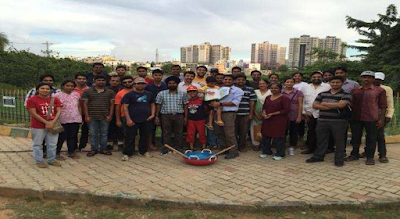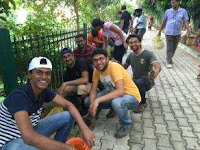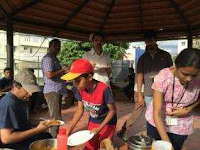Similar Story
Mumbai floods once again. Will BMC’s climate budget help?
On July 8th, rains lashed Mumbai, disrupting regular life and causing waterlogging and floods in low-lying areas and on important routes. Central Railway officials mention that almost 900 train services were cancelled leaving several commuters stranded, while many BEST buses were diverted. Since then several incidents of heavy rains and flooding have been reported in the city. Commuters, civic activists and residents have questioned the claims made by the Brihanmumbai Municipal Corporation (BMC) about being prepared for the monsoons. “The half-constructed, newly-built DP road number 9 in Chandivali was waterlogged, which caused inconvenience to commuters,” said Mandeep Singh Makkar, founder…



